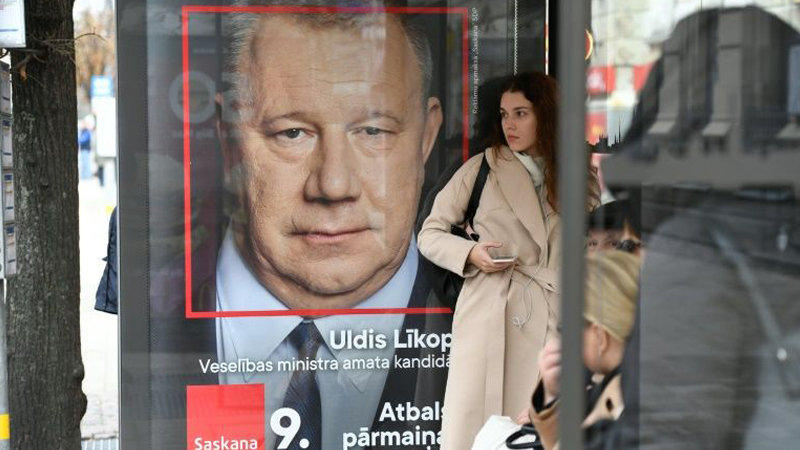Latvia votes as Russians, populists eye power

Agency
October 08, 2018

RIGA –Latvians vote Saturday in a general election that could propel a populist, pro-Kremlin coalition to power as the Baltic state celebrates the centenary of its birth as an independent state.
Though lauded for righting the economy, opinion polls suggest that the governing centre-right coalition has lost ground.
But with a quarter of voters still undecided according to pollsters, the election is still wide open.
Latvia is a member of both the eurozone and NATO, having joined the military alliance in 2004.
But Latvia's ethnic Russian minority makes up about a quarter of the country's 1.9 million population.
And Harmony, which was formerly allied with Putin's United Russia party, is popular with them.
The party has won the largest number of votes in the last three elections and the only reason it did not enter government is it failed to attract coalition partners.
But this time around that could change.
- Decades of occupation -
Along with fellow Baltic states Estonia and Lithuania, Latvia declared independence in 1918 after the Tsarist Russian empire collapsed.
But it was subsequently occupied by Nazi Germany and after them by the Soviet Union for nearly half a century until 1991.
After the last election in 2014, the centre-right Greens and Farmers Union, the right-wing National Alliance and the centre-right Unity formed a three-party coalition to run the country.
Under their watch the economy, hit hard by the 2008 financial crisis, has resumed growth.
But the polls suggest that voters are abandoning the ruling coalition.
"Voters are tired of hard work, which was necessary to pull Latvia out of the economic crisis," political scientist Filips Rajevskis told AFP.
"Now... voters want new faces: the current ministers cannot offer anything entertaining. That's where the populism kicks in," he said.
While the old parties were trying to introduce some new faces, that tactic did not appear to be working, said Rajevskis.
"Therefore there's the possibility of a Russia-oriented coalition after the election."
- A quarter undecided -
Polls suggest the Greens and Farmers Union, which currently holds the posts of both president and prime minister, will win no more than 15 seats in the 100-seat parliament.
The National Alliance meanwhile, is expected to win 13.
Unity, now rebranded as New Unity, might not even meet the five-percent threshold required to make it into parliament.
Harmony meanwhile has signed on some high-profile ethnic Latvians as their frontrunners, and is on track to come out ahead with at least 28 seats.
And this time, after a decade of trying, the party may finally manage to form a government by joining forces with newcomer populists.
KPV LV, a populist party led by former stage actor Artuss Kaimins, is a potential coalition partner. The party could win at least 15 seats.
"KPV LV is a 'shadow branch' of Harmony, which is not alone in its power quest any more," said political analyst Bendiks.
Kaimins was briefly detained over alleged corruption in June, but that does not appear to have bothered voters.
And the party's candidate for prime minister, lawyer Aldis Gobzems, recently suggested they were open to working with other parties.
"KPV LV can work with anybody, we don't have any red lines regarding any other political force," Gobzems said during a TV24 debate.
But on the eve of the election, a quarter of voters remain undecided, according to independent polling firm SKDS.
A total of 16 parties are on the ballot. Polling stations open on Saturday from 0500 GMT to 1700 GMT, with exit polls soon after and results expected early Sunday.
---


Leave Comment